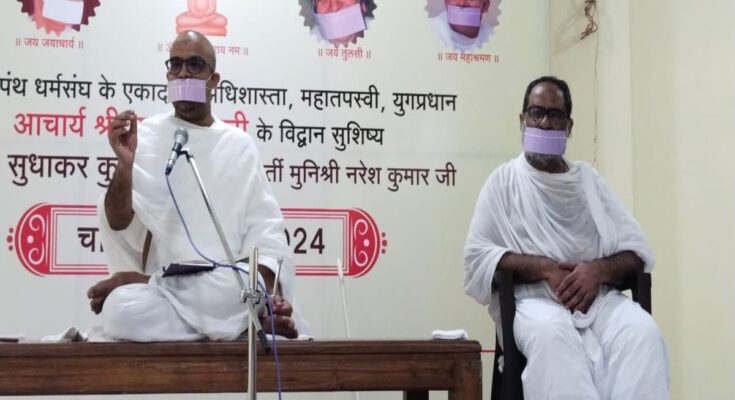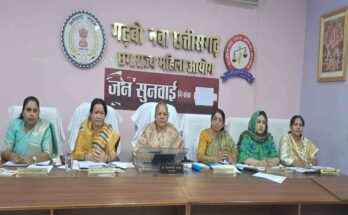Raipur. On the occasion of Krishna Janmashtami, a special discourse on “How Lord Krishna teaches us to live” was organized at Shri Lal Ganga Patwa Bhawan in Tagore Nagar of the capital today. In this event, Acharya Mahashraman’s disciples Munishri Sudhakar and Munishri Naresh Kumar gave discourses to th
Munishri Sudhakar said that Shri Krishna’s life was full of ups and downs, yet he remained calm in every situation and always remained happy and smiling. Shri Krishna was the one who accepted to become a charioteer despite having the power of Sudarshan Chakra in his hands i.e. being a great warrior. Shri Krishna was the one who had the tolerance to forgive 99 mistakes despite having the ability to behead someone in one mistake. That is, his conduct teaches us that we should always strive for good moments or to avoid destruction.
Munishri further said that once a person asked Shri Krishna that why do you always keep this flute in your hand. So Shri Krishna gave a very beautiful answer that the flute has three types of features, first there is no knot of any kind in it, second it speaks only when spoken to and third whenever it speaks, it speaks sweetly.
He further said that there were many similarities in the life events of Lord Krishna and Lord Mahavir. In Jainism, 63 Shalaka Purushas i.e. special persons are mentioned. Vasudev Shri Krishna is also included in them. Munishri described three special qualities of his life.
- He was the god of sweetness,
- He was the founder of Karmayoga,
- He was a peace ambassador because he made every possible effort to avoid the Mahabharata war.
Munishri Naresh Kumar inspired people through the sweet song “Bhavsagar Paar Laage Re Mahamantra Navkar…” Today, ascetics Shobha Sethia, Arun Sipani, Sonam Barlota and Parakh came to Munishri with the testimony of their penance.
e people on the life teachings given by Lord Krishna.




